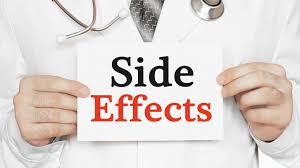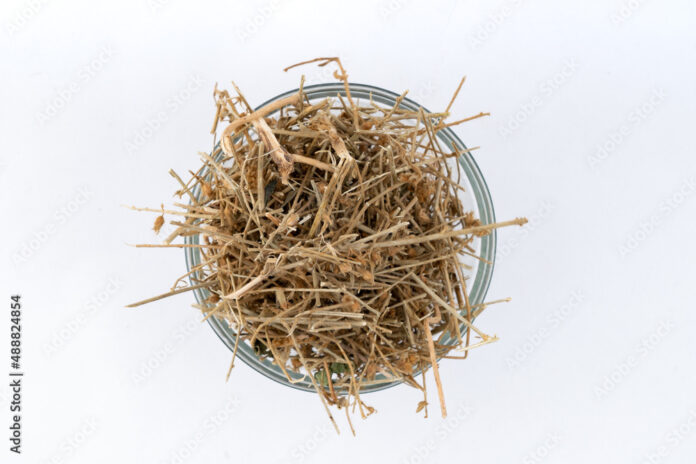Introduction
False Daisy, known as Eclipta alba, is a herb that is commonly used in traditional medicine across various cultures. In some regions, it is called Bhangra, particularly in parts of India. This plant is widely regarded for its potential health benefits and medicinal properties. False Daisy is often found in tropical and subtropical regions and has been incorporated into herbal practices for centuries. While it is commonly associated with improving hair health, it has a broad range of uses in the field of natural medicine.
Forms of False Daisy (Bhangra)
False Daisy is available in various forms depending on how it is used. Here are some common forms:
- Powder: The dried leaves of the plant are ground into a fine powder. This powder can be used topically or ingested.
- Oil: Eclipta alba is commonly found as an oil that is prepared from its leaves. This oil is widely used in hair care and skin treatments.
- Juice or Decoction: Fresh leaves of the plant are used to make juices or decoctions, which are consumed for a variety of health issues.
- Capsules/Tablets: In some cases, powdered False Daisy is encapsulated for easy consumption, especially in herbal supplement forms.
- Extract: Concentrated extracts of False Daisy are used in many wellness products.
- Topical Paste: A paste made from crushed leaves of Eclipta alba is applied directly to the skin for its therapeutic benefits.
Benefits of False Daisy (Bhangra)

- Promotes Hair Growth: One of the most popular uses of False Daisy is for improving hair health. It is believed to promote hair growth, prevent hair fall, and even reduce dandruff. The oil of Eclipta alba is often massaged into the scalp to strengthen hair roots, nourish the scalp, and stimulate growth.
- Improves Liver Health: Eclipta alba has been used traditionally as a remedy for liver diseases. Its detoxifying properties help in the treatment of jaundice, liver cirrhosis, and other liver-related conditions.
- Supports Skin Health: The herb is also known for its anti-inflammatory and antimicrobial properties. It is commonly used in the treatment of skin disorders such as acne, eczema, and rashes. Applying False Daisy oil or paste can help soothe irritated skin and reduce redness or swelling.
- Boosts Immunity: False Daisy is considered an immune booster due to its antioxidant properties. The plant helps in fighting infections and strengthening the body’s defense mechanisms.
- Anti-Aging Effects: Due to its rich content of antioxidants, False Daisy is used in anti-aging treatments. It is believed to prevent wrinkles, fine lines, and age spots by promoting skin regeneraion and collagen production.
- Reduces Inflammation: The herb is known for its anti-inflammatory properties, which make it beneficial in the treatment of conditions like arthritis, swelling, and joint pain. It helps in reducing inflammation both internally and externally.
- Improves Digestion: Consuming Eclipta alba is thought to support digestive health. It may help alleviate symptoms like constipation, indigestion, and bloating. It also improves the overall function of the digestive system.
- Treats Respiratory Issues: False Daisy is sometimes used in traditional medicine to relieve symptoms of respiratory issues such as asthma, bronchitis, and coughs. It has expectorant properties that help clear mucus from the airways.
Side Effects of False Daisy (Bhangra)
While False Daisy has many potential benefits, it is important to be aware of the possible side effects that may arise, especially when used improperly or in large quantities:

- Allergic Reactions: Some individuals may experience allergic reactions to Eclipta alba. Symptoms such as skin rashes, itching, or swelling may occur. It is advisable to perform a patch test before using it topically.
- Overconsumption: Excessive consumption of False Daisy in any form can lead to adverse effects like stomach upset, nausea, or diarrhea. Moderation is key when taking it orally.
- Interference with Medications: False Daisy may interact with certain medications, especially those that are used for liver disease, blood thinners, or blood pressure medications. Always consult with a healthcare provider before using this herb if you are on prescription drugs.
- Pregnancy and Breastfeeding: There is limited research regarding the safety of False Daisy during pregnancy or breastfeeding. It is best to avoid its use during these periods unless directed by a medical professional.
- Liver Toxicity: While Eclipta alba is traditionally known for its liver benefits, excessive use might stress the liver in certain individuals, especially those with pre-existing liver conditions.
- Hypotension: Some studies suggest that False Daisy might lower blood pressure. People with low blood pressure or those on blood pressure medications should be cautious when using it.
This Article is for Basic Information. Contact a professional doctor before using it.
HAKEEM KARAMAT ULLAH
+923090560000




